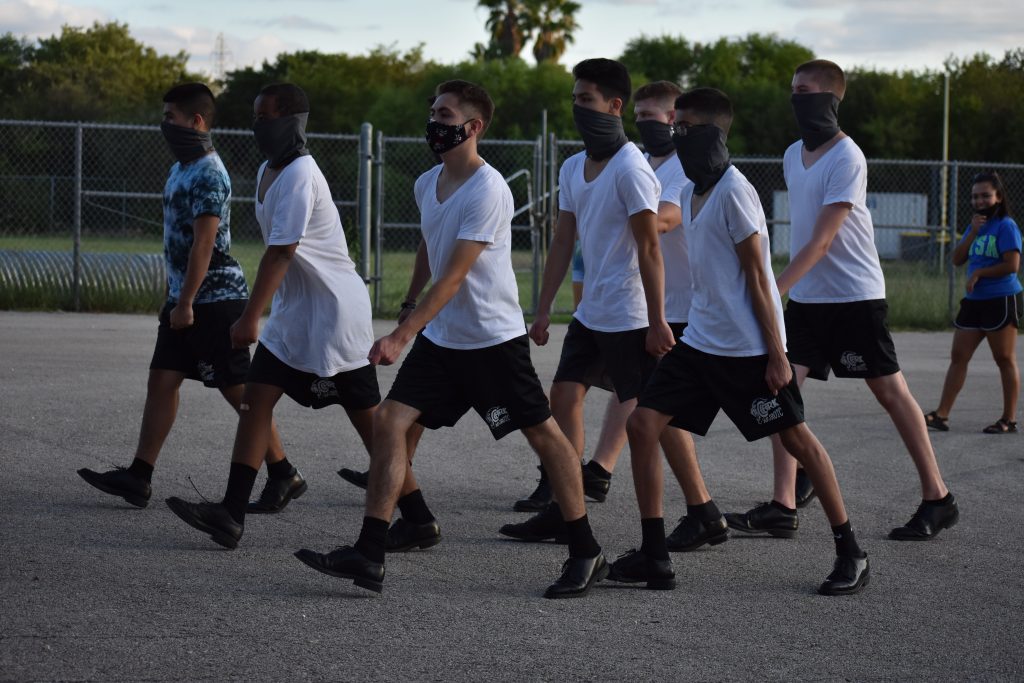It is zero dark thirty, as the military would call it.
The day begins with a set of push ups.
The blood starts rushing.
A hit of endorphins quickly follows and any sleepiness wears off.
The retired Air Force veteran leads his JROTC cadets in a vigorous, early morning workout.
Sergeant John Carbon is a JROTC Aerospace science instructor who also directs the physical training team.
“I find it a responsibility to make a positive impact on my students and their families,” Carbon said. “I wish to create a pocket of healthy living in the community.”
Growing up in the projects of Queens, New York, Carbon was not always a champion of fitness.
“In my 20s, I would abuse my body,” Carbon said. “As a lab technician in the service, I very frequently saw abnormal blood work and patients with diabetes or hypertension. This was a wake-up call for me, so I picked up boxing. I fell in love with pushing myself physically and following a proper diet.”
Carbon takes pride in bringing an attitude of enthusiasm toward leading a healthy life.
“It makes me happy to see my students lose track of time in class because they are so engrossed in learning about nutrition and exercise,” Carbon said. “I enjoy hearing the small changes they make in their lives after my Friday lessons.”
Although many students receive Carbon’s health lessons with open arms, he is not met without resistance.
“Kids in JROTC make the point that being young means they can do whatever they want to their bodies,” said sophomore Ava Brazell. “That includes not having to eat healthy foods.”
Another common counterclaim to Carbon’s health advice involves the monetary cost of nutritious foods.
“Many cadets rationalize against a healthy diet by arguing that organic fruits and vegetables are too expensive,” Carbon said. “At the end of the day, you’re either going to pay the doctor or the farmer. You choose your pain: The pain of self-discipline or the pain of regret.”
Carbon views the health crisis in the United States as an exigence for his health and wellness Fridays.
“American culture has normalized unhealthy eating, so we need to break that cycle of poor nutrition to prevent so much death,” Carbon said. “I am not telling students to become vegans, but I want them to make better collective choices with what they eat.”
Carbon values making his lessons relatable and interactive for his cadets.
“It’s fun to start thought-provoking conversations with the kids,” Carbon said. “I try to break down misconceptions about health. Many people think they can outrun their fork when getting in shape, but eating right comes before the exercise. Staying in shape is about 80% diet and 20% exercise.”
Carbon understands that breaking bad habits in general is no easy feat. However, as someone who grew up in New York, he is a no-nonsense type of guy who does not put up with excuses for a lack of self control.
“The most important piece of advice I give my students in starting their journey to living a healthier lifestyle is to understand their ABCs- attitude, behavior, and commitment,” Carbon said. “Your mind is the general and your body is the soldier. Nothing worth doing should be easy.”
When adopting healthy living, it is necessary to ‘embrace the suck,’ as the military would say.
By Jacob Hesita.
